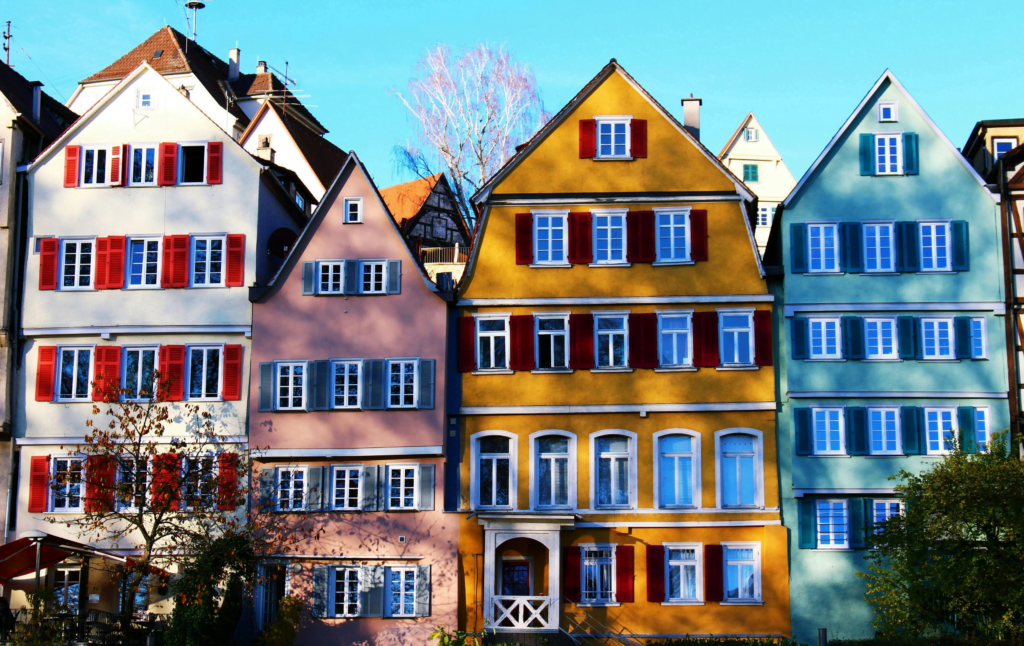
Germany is a popular destination for people worldwide due to its strong economy, high quality of life, world-class education system, and diverse job opportunities. For many, moving to Germany can be the first step toward settling there permanently. Obtaining permanent residency (PR) in Germany is a dream for many international students, skilled professionals, and expatriates.
This article will provide a detailed guide on how to get permanent residency in Germany, including eligibility requirements, different pathways to PR, the application process, and what benefits come with holding PR status.
1. What is Permanent Residency (PR) in Germany?
Permanent residency in Germany, also known as a settlement permit or Niederlassungserlaubnis, allows foreign nationals to live and work in Germany indefinitely. With PR status, individuals are no longer subject to the restrictions of their original residence permit, meaning they can freely work, live, and study in Germany without needing additional permits.
PR holders enjoy many of the same rights as German citizens, except for voting in federal elections or holding a German passport. It is a significant step for anyone aiming to make Germany their long-term home.
2. Types of Permanent Residency in Germany
Germany offers several pathways to obtaining permanent residency, depending on your circumstances. The most common types are:
- Standard Settlement Permit (Niederlassungserlaubnis): This is the standard permanent residency for non-EU nationals who have lived and worked in Germany for a certain period.
- EU Blue Card Holders: Highly skilled workers who hold the EU Blue Card can apply for permanent residency after a shorter period.
- Settlement Permit for Graduates of German Universities: International students who have graduated from a German university and worked in Germany can apply for PR after a specific time.
- Settlement Permit for Self-Employed Individuals: Entrepreneurs and business owners who contribute to the German economy may also qualify for permanent residency.
Each of these routes has its own set of requirements, and applicants must ensure they meet the criteria specific to their situation.
3. Eligibility Criteria for Permanent Residency in Germany
The requirements for obtaining permanent residency in Germany can vary depending on your circumstances. However, some general eligibility criteria apply to most applicants:
a. Duration of Stay
To be eligible for PR, you must have lived in Germany legally for a specific period. Typically, this period is five years for most residents. However, certain groups, such as EU Blue Card holders and graduates from German universities, can apply earlier.
For example:
- EU Blue Card holders: After 33 months of working in Germany, or 21 months if they have B1-level German language proficiency.
- Graduates of German universities: After 2 years of working in a job related to their field of study.
b. Stable Income and Employment
You must demonstrate that you can financially support yourself and your family without relying on social benefits. This usually means you need a stable job or sufficient income from self-employment.
c. Social Contributions
You need to have paid into the German social security system for at least 60 months (5 years). For EU Blue Card holders, the minimum contribution period can be reduced to 33 or 21 months, depending on their German language proficiency.
d. German Language Proficiency
Language skills are an essential part of the PR application. For the standard PR permit, a basic level of German (A2) is usually required. However, for those applying earlier (such as Blue Card holders or university graduates), you may need a higher proficiency (B1).
e. Knowledge of German Law and Society
Applicants must demonstrate knowledge of the German legal system, culture, and social order. This is typically proven by completing a Leben in Deutschland (Life in Germany) integration course or passing a corresponding test.
f. Adequate Housing
You must have adequate accommodation for yourself and your family. Proof of residence, such as a rental contract, is required during the application process.
g. No Criminal Record
A clean criminal record is essential for obtaining PR in Germany. Any significant violations of the law could disqualify you from receiving permanent residency.
4. Application Process for Permanent Residency in Germany
The process for applying for PR in Germany involves several steps. Below is a step-by-step guide to help you through the process:
a. Gather Required Documents
Before applying for permanent residency, you must gather all the necessary documents. Commonly required documents include:
- A valid passport
- Current residence permit
- Proof of employment and income (e.g., salary slips or tax returns)
- Proof of social security contributions (pension statements)
- German language certificate (A2 or higher)
- Proof of health insurance
- Rental contract or proof of accommodation
- Proof of completion of the integration course (if applicable)
- Clean criminal record
b. Schedule an Appointment at the Ausländerbehörde
You need to schedule an appointment at your local Ausländerbehörde (Foreigners’ Office) to submit your application. Be sure to book your appointment well in advance, as wait times can be long in some cities.
c. Submit the Application
During your appointment, submit your application form along with the required documents. The official will review your documents to ensure everything is in order. If they need any additional information, they will let you know.
d. Attend an Interview (if necessary)
In some cases, you may be required to attend an interview at the Ausländerbehörde to discuss your application further. They may ask questions related to your employment, language proficiency, and integration into German society.
e. Wait for the Decision
Once you have submitted your application, the waiting time for a decision can vary depending on the complexity of your case and the workload of the Foreigners’ Office. It usually takes a few weeks to a few months to receive a decision.
f. Receive Your PR Permit
If your application is approved, you will receive your Niederlassungserlaubnis (PR permit). This is typically a sticker or card attached to your passport, allowing you to live and work in Germany indefinitely.
5. Benefits of Permanent Residency in Germany
Obtaining permanent residency in Germany comes with numerous benefits that make it an attractive option for expats looking to settle down. These benefits include:
- Unlimited Right to Work: As a PR holder, you are free to work in any profession or industry without needing a separate work permit. You can also switch employers or become self-employed.
- Indefinite Right to Stay: PR status allows you to live in Germany for as long as you like, without worrying about visa renewals.
- Access to Social Benefits: PR holders are entitled to various social benefits, such as unemployment benefits, parental leave, and access to public healthcare.
- Freedom to Travel: You can travel freely within the EU/EEA countries without needing a visa. Additionally, you can leave Germany for up to six months without losing your PR status.
- Path to Citizenship: After holding permanent residency for a certain number of years (usually 8 years), you may be eligible to apply for German citizenship.
6. Challenges and Considerations
While obtaining permanent residency in Germany is an exciting prospect, there are certain challenges to be aware of:
- German Language Requirement: Learning German up to at least an A2 or B1 level is essential, and it may take time and effort for non-German speakers.
- Financial Stability: You need to demonstrate that you are financially independent, which can be challenging for those with irregular income or self-employed individuals.
- Long Waiting Times: The application process can take several months, and scheduling an appointment at the Ausländerbehörde may involve long wait times.
Conclusion
Securing permanent residency in Germany is a significant milestone for anyone looking to make the country their long-term home. With PR status, you gain the freedom to live and work in Germany indefinitely, access to social benefits, and the option to apply for citizenship in the future. By understanding the eligibility criteria, gathering the necessary documents, and following the application process, you can successfully navigate the path to permanent residency.
For expats, international students, and skilled professionals, Germany offers numerous opportunities for growth, both professionally and personally. Achieving permanent residency is a crucial step in ensuring a stable, secure, and prosperous future in one of the most dynamic countries in Europe.


